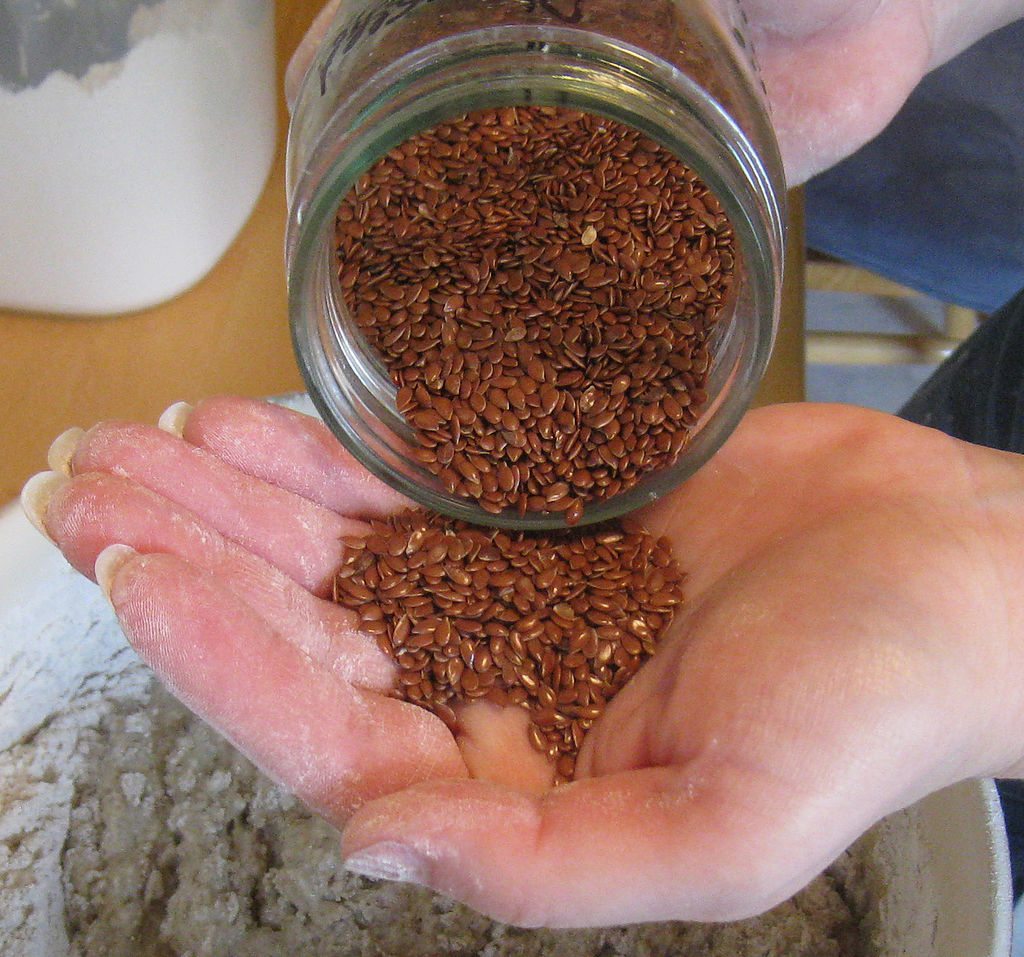

· By Shelia Morgan
Featured Dog Food Ingredient of the Month: Flaxseed
6,000 years ago, the word ‘superfood’ was nonexistent.
Still, Flaxseed stood out as a nutrient-packed dietary staple– a key crop that was widely cultivated and revered among ancient civilizations in the Middle East.
Today, it’s used all over the world and widely associated with a host of health benefits from weight loss and healthy hair all the way up to reducing certain types of cancer. And this isn’t just true of humans!
A 2001 Texas A&M University study on the effects of dietary flax seed and sunflower seed in 18 canines revealed that after one month the quality of dogs’ skin and hair coat noticeably improved.
It’s one of the reasons we feel so strongly about including it in our all-natural dog foods and livestock feeds. During the month of May, we’re highlighting this ancient grain and touting its health benefits for all the animal kingdom.
What Is Flaxseed?
Flaxseeds, otherwise known as linseeds, are small, brown-ish seeds that fall from a blue flowering flax plant. As far as plant-based omega-3 fatty acids go, they take the cake, producing the highest known concentrations of alpha-linolenic acid (ALA).
Flaxseed is also high in:
- Fiber, supporting functions like colon detox and reduced sugar cravings with its soluble and insoluble fibers.
- Vitamins and minerals, including recommended daily doses of various B Vitamins, Manganese, Phosphorus, Selenium, iron, potassium, copper and zinc.
- Phytochemicals, including many powerful antioxidants such as lignans.
A Brief Look at Flaxseed’s Long History
Since about 4000 BC, several regions along the Mediterranean Sea have recorded the cultivation of flax crops for both culinary and domestic uses like textiles. However, as World Healthy Foods suggests, “there is some evidence that flax cultivation may have started even thousands of years earlier, during the Neolithic Era of approximately 10,000 BC.”
Top Benefits Associated with Gluten-Free Flaxseed
Animals suffering from Celiac disease or sensitivities to gluten would do well to replace other grains with this nutritious, anti-inflammatory substitute.
And though seafood allergies are found more in humans than animals, flaxseed is an excellent alternative source of the omega-3 fats commonly found in fish.
Nutrient dense flaxseed is also a powerhouse of health benefits. As Dr. Axe explains, the most common of which include Flaxseed’s ability to:
- Improve Skin and Hair (coat)- by acting as an internal natural moisturizer.
- Promote Weight Loss - says the Journal of Nutrition.
- Lower Cholesterol & Balance Hormones- thanks to all the soluble fiber.
- Slow the Aging Process- because of their high antioxidant concentrations.
- Eliminate Yeast and Candida– with polyphenols that support healthy probiotics in the gut.
- Prevent Colds and flus- via lignans that have anti-viral and antibacterial properties.
- Aid Digestive Health- including protection of GI/digestive tract and alleviating some ailments like Crohn’s disease.
- Reduce Cancer Risk- especially in fighting breast, prostate, ovarian and colon cancer.
- Alleviate Menopausal Symptoms– which can be used as a hormone replacement therapy alternative.
- Lessen Osteoporosis Risk– because lignans possess many estrogenic properties.
- Prevent Arthritis– since Flaxseed has such strong anti-inflammatory potential.
In the end, the many health benefits of Flaxseed are undeniable. They’ve been responsible for keeping our human and animal ancestors healthy for thousands of years. Today we use Flaxseed to care for the healthy of our four-legged family members by adding it as a critical ingredient of our quality, all-natural dog foods.
While this article is focused on the benefits of flaxseed, if your pet is sensitive to it, try our 1932 Flax Free Chicken Dog Food.
